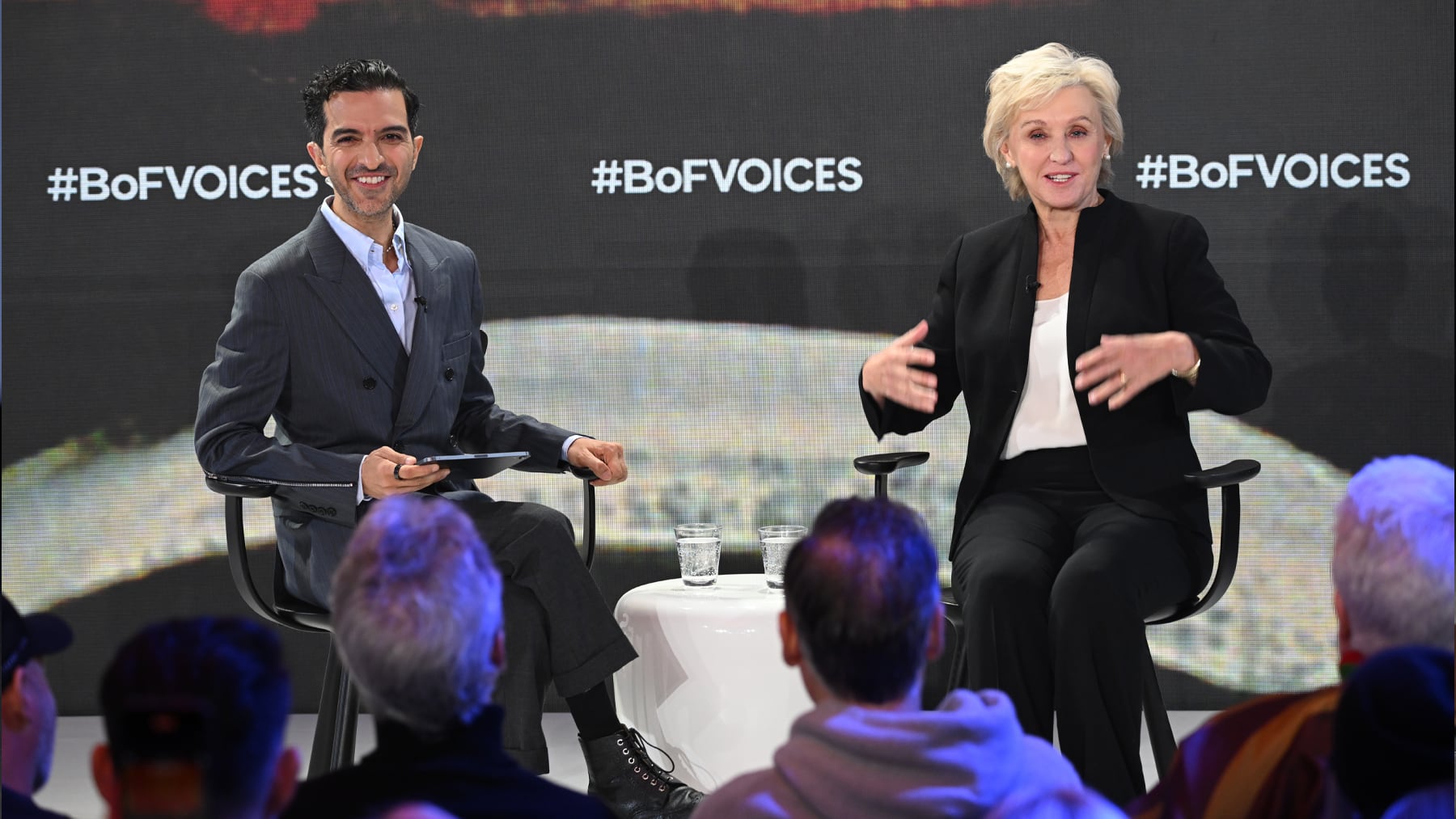
The author has shared a Podcast.You will need to accept and consent to the use of cookies and similar technologies by our third-party partners (including: YouTube, Instagram or Twitter), in order to view embedded content in this article and others you may visit in future.
Subscribe to the BoF Podcast here.
Background
Tina Brown is a force of nature in the world of journalism, offering unflinching and sometimes provocative glimpses into the lives of the world’s most famous figures.
Born in England and educated at Oxford, she stormed the traditionally male bastions of print media, becoming editor-in-chief of Tatler at just 25. A few years later, she ushered in a new era as editor-in-chief of Vanity Fair, which was tens of millions of dollars in debt when she took over. Her unique formula of seductive storytelling, combined with hard-hitting journalism, increased the magazine’s monthly circulation from 200,000 to 1.2 million.
As an editor, Tina has never been afraid to push boundaries or challenge the orthodoxy, and she has not lost her magic touch. Last month she launched a weekly Substack newsletter, “Fresh Hell: Tina Brown’s Diary” where she has already opined on trending topics from the Menendez brothers to the re-election of Donald Trump. Right now, one of her main pre-occupations is around the future of journalism.
“More serious than anything is the death of truth and what that can do to a society,” she warns. “The resistance is going to have to come from the media.”
At VOICES 2024, Brown reflects on the seismic shifts in media, what this means for truth and democracy, and the role of journalism in the age of Donald Trump.
Key Insights
- “I love the art of magazines … but I don’t read them anymore,” Brown admitted, echoing the sentiments of a changing audience. She argues that while print media might be fading, the real battle is to sustain investigative journalism, which remains critical to democracy. “What matters is that we have thoughtful, curious, truth-telling journalists in the roles that matter.”
- Brown criticises tech companies for profiting from journalism’s decline. “Twenty years ago, traditional media was too passive in the face of digital disruption,” she explains. “Content was taken for free and monetised by tech platforms, and we’re seeing it happen again with AI.” Highlighting the existential threat posed by the erosion of public trust in journalism, Brown calls for tech companies to take responsibility and invest meaningfully in journalism.
- On the battle between creativity and technology, Brown lamented the undervaluation of human creativity in an increasingly algorithm-driven world. “I do not know why writing sentences is not valued more than writing code, because they last longer, that’s for sure. One Shakespeare sonnet – beat that algorithm.”
- Reflecting on Trump’s influence on both media and politics, Brown describes him as “the world’s great showman.” “He ran a campaign that was just endlessly watchable and was so extraordinarily sort of resourceful on improvising all the time,” she notes. However, Brown questions this approach to politics as entertainment. “We’ve become so debased by entertainment values that we now require our politicians to be entertainment,” she argued. “I actually question whether the old style politician will ever be in favour again.”
Additional Resources
- BoF VOICES 2024: Confronting an Age of Uncertainty. Former Vanity Fair editor Tina Brown, indigenous environmental activist Nemonte Nenquimo and McKinsey Global Institute chair Sven Smit unpack the cultural, economic, political and technological forces reforging the global landscape.



